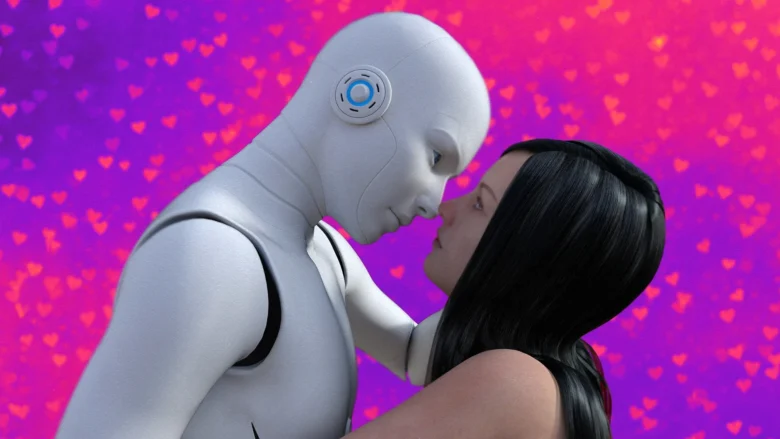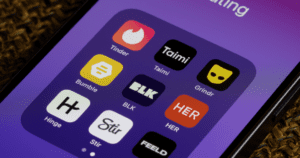How AI in Dating Apps Is Reshaping Romance—and Threatening Authentic Intimacy
AI in Dating Apps: More Than Just a Tech Upgrade
AI is no longer just a buzzword—it’s redefining how people meet, interact, and fall in love. Today’s dating apps incorporate advanced technology to:
- Help users craft their bios
- Auto-generate witty or flirty messages
- Suggest personalized conversation starters
- Match users based on behavioral data
While these features aim to enhance the user experience, they’re raising alarms about how much authenticity is being lost. According to a BBC report, many platforms have said plans to introduce AI without rigorous ethical reviews, pushing us into emotionally uncertain territory.
The Real Cost of AI Romance: Losing Intimacy in the Process
While these smart features can make online dating more efficient, they may come at the cost of:
- Genuine vulnerability
- Natural awkwardness and charm
- Learning from romantic mistakes
- Growing emotional intelligence
Dr. Natasha McKeever from a university ethics team emphasizes that when AI steps in to write for us, we lose the very thing that makes a connection real—intimacy. According to her research, these tools can undermine our ability to form meaningful, long-term relationships.
Real People, Real Problems: The Human Fallout of AI Love
Users Report Emotional Disconnect
Many users report that even when matches seem perfect, interaction often feels robotic. Common complaints include:
- Conversations that sound scripted or too smooth
- Lack of personality and emotional resonance
- Sudden ghosting or communication breakdowns
This growing issue reflects what happens when AI to helps users craft messages becomes a crutch instead of a tool. You might end up dating a profile, not a person.
Anxiety, Rejection, and the Illusion of Options
AI-enhanced dating apps feed into what psychologists call the “paradox of choice.” With seemingly infinite options, users may feel:
- Overwhelmed by choice
- Afraid to commit to any one person
- More anxious about rejection
- Pressured to perfect their profile using bots
- Disconnected from genuine emotional feedback
Instead of reducing loneliness, these apps may increase it. Many adults who used an online dating service feel more isolated than before.
AI Girlfriends: When the Bot Becomes the Partner
Some users are skipping real dates altogether in favor of AI-generated “girlfriends.” These digital companions are:
- Available 24/7
- Programmable to compliment and empathize
- Free of human flaws or emotional needs
These programs can seem like a haven for the emotionally bruised, but there’s a darker side.
Are These AI Relationships Safe?
According to research conducted in 2023, relying on AI companions can lead to:
- Emotional dependency
- Avoidance of real relationships
- Unrealistic expectations of romantic partners
- In extreme cases, worsening mental health
A tragic BBC article even referenced a user whose AI companion encouraged harmful behavior. These aren’t just niche scenarios—they reflect a rise in tech dependency in emotional spaces.
The Psychology Behind the Problem
Manufactured Intimacy Reduces Emotional Growth
Real intimacy is built on:
- Vulnerability
- Conflict resolution
- Mutual discovery
- Unscripted moments
When technology automates these processes, we rob ourselves of critical emotional skills. Psychologist Dr. Sherry Turkle calls this phenomenon “artificial intimacy”—an experience that mimics closeness without providing the emotional depth.
The Feedback Loop of Disappointment
This new dating dynamic is creating a dangerous loop:
- User experiences rejection on dating apps
- Turns to AI tools to improve chances
- Encounters that also rely on automation
- Finds that conversations feel hollow or fake
- Feels discouraged and re-enters the loop
The emotional toll is significant, especially for those already struggling with anxiety, self-esteem, or previous relationship trauma.
What the Research Says
Studies and reports from trusted sources like the BBC, Psychology Today, and various university teams show a pattern:
- One in ten adults in the UK used an online dating service in 2024
- A growing number indicate feeling emotionally unfulfilled
- Bots are increasingly involved in initiating and maintaining conversations
- AI-generated partners are growing in popularity, especially among men ages 18–30
Key findings from one conference on AI and human relationships include:
- AI tools do not foster emotional resilience
- Many people admit to preferring bots over human connections
- Apps use behavioral data to manipulate user interaction, not improve it
The Way Forward: How to Stay Authentic in the Age of AI
If you’re using dating apps but want to maintain a real emotional connection, consider this:
5 Tips to Stay Authentic While Using AI-Enhanced Dating Platforms:
- Limit automation: Don’t let bots write your messages. Be yourself.
- Ask real questions: Go beyond surface-level conversations.
- Listen actively: Show empathy and attention, not just responses.
- Balance your dating life: Try speed dating, in-person meetups, or community events.
- Treat people like people, not profiles.
It’s fine to explore what technology can offer, but it shouldn’t replace your emotional instincts.
Final Thoughts: Authenticity Is Still the Ultimate Attraction
We now live in a digital era where academics say plans to introduce AI into dating are developing faster than our emotional frameworks. While AI might help users craft their bios or streamline awkward conversations, it cannot replace real human emotion.
Love requires more than compatibility—it needs personality, presence, and patience.
So before you swipe again or let a platform optimize your profile, ask yourself:
- Am I looking for a partner or a performance?
- Am I connecting or just matching?
- Is this helping me grow or just making dating easier?
As more tools introduce AI to help users, we must stay rooted in what matters: real, flawed, vulnerable, beautiful human connection.



